Do you trust yourself to make the right decisions and follow through on your goals? If not, your lack of self-trust may be harming your personal growth and confidence. In this article, we’ll explore 7 effective self-trust exercises to help you boost your self-trust!
Contents
Why Self-Trust Matters
Self-trust is the confidence you have in your ability to make decisions, handle challenges, and stay true to your values and commitments. It means believing in your judgment, honoring your boundaries, and trusting yourself to take the right actions.
Having good self-trust is important for several areas of your life:
- Increased confidence. Self-trust boosts your belief in your abilities, which helps you approach challenges and goals with courage. It’s the feeling of “I’ve got this!”
- Better relationships. Trusting yourself helps you set healthy boundaries, communicate honestly, and maintain relationships based on mutual respect. This is important to make sure you have a stable and healthy social life.
- Less anxiety and overthinking. With self-trust, you’re less likely to second-guess yourself or dwell on what others think. This calms your mind and helps you focus on what’s important. Overall, it’s good for your mental health.
- Greater resilience. Problems and setbacks are never fun, but self-trust gives you the strength to bounce back from them, as you believe in your capacity to adapt, overcome, and grow.
- Better decision-making. When you trust yourself, you make decisions with greater clarity and confidence, even in challenging or uncertain situations.
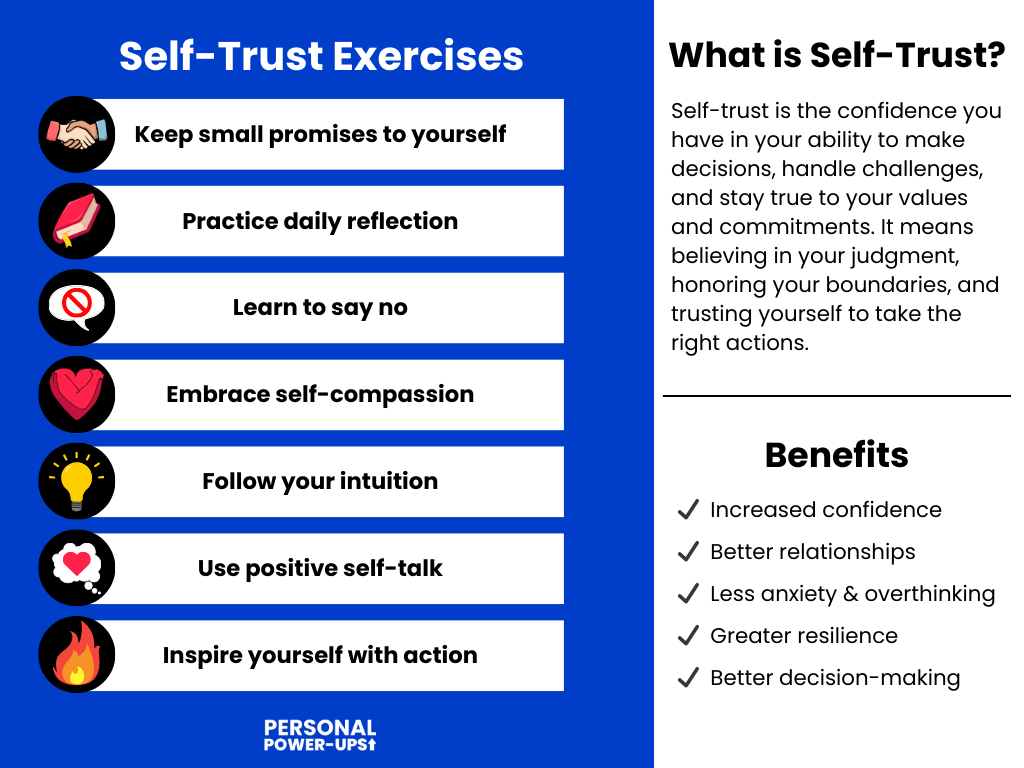
▼ Ad
Common Challenges
As the previous section shows, self-trust has lots of benefits. There are, however, several common challenges involving self-trust that people face:
- Fear of failure. Worrying about making mistakes can cause hesitation and self-doubt. This undermines trust in your ability to succeed.
- Overthinking and indecision. Constantly second-guessing your choices paralyzes your decision-making and hurts your confidence.
- Self-blame. Dwelling on previous failures or poor decisions can lead to self-blame and difficulty trusting yourself in the future. We all make mistakes all the time, and that’s perfectly okay.
- Perfectionism. The pressure to get everything right creates fear and hesitation, preventing you from trusting your ability to handle imperfection.
- Lack of boundaries. Saying “yes” when you mean “no” or neglecting your needs for others is a clear sign of a lack of boundaries.
- Negative self-talk. Having a negative inner dialogue chips away at your self-esteem and makes you question your capabilities.
- Inconsistent actions. When you frequently break promises to yourself, it weakens your sense of reliability and trust. Just like it would if it were another person that broke their promises to you.
These challenges can be overcome through several exercises. Let’s take a look at seven of the best exercises to boost your self-trust.
▼ Ad
Self-Trust Exercises
Below are seven exercises, with each exercise targeting specific parts of self-trust. I encourage you to take a look and pick the exercise(s) that appeal the most to your specific situation.
Exercise 1: Keep Small Promises to Yourself
This exercise directly counters the challenge of inconsistent actions: when you frequently break promises you made to yourself, it makes you feel you can’t rely on yourself.
By starting with small, manageable tasks—such as drinking a glass of water every morning or walking for five minutes—you can rebuild that reliability.
Success in these small commitments helps you trust yourself again, even when past mistakes have made you doubt your follow-through. After a few times, you can up the game by making bigger promises. Bit by bit, you’ll see you are perfectly capable of keeping promises and taking action.
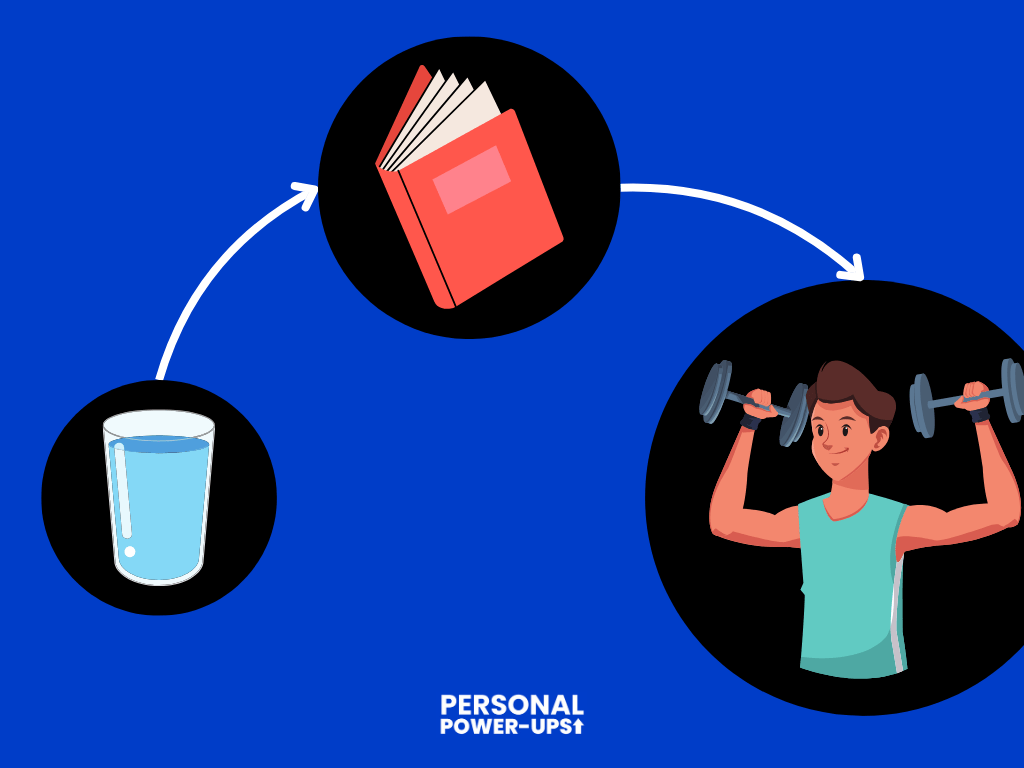
Exercise 2: Practice Daily Reflection
Overthinking and negative self-talk hurt your self-trust. Daily reflection helps quiet this noise by creating space to focus on what went well and what you learned.
Through journaling or quiet contemplation, you can identify patterns, celebrate progress, and gain clarity about your actions. This practice shifts your mindset from focusing on failures to recognizing growth, reducing self-doubt in the process.
If you’d like some inspiration for your daily reflections, check out our list of journaling prompts to boost self-esteem.
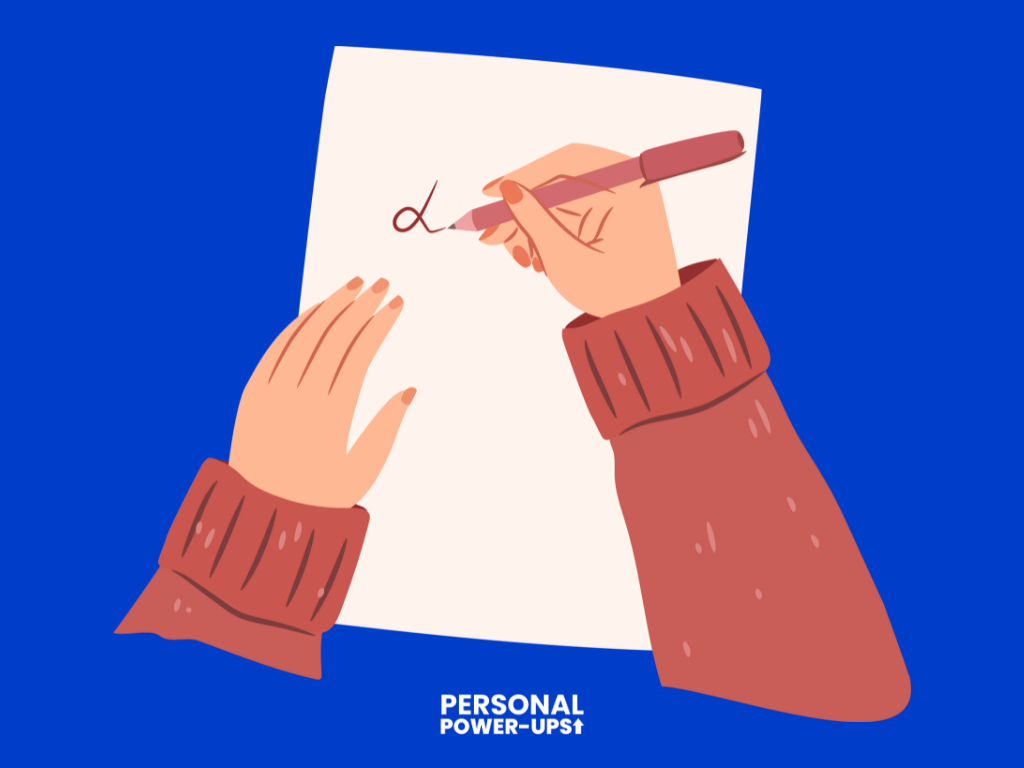
Exercise 3: Learn to Say No
A lack of boundaries and fear of judgment often lead to saying yes when you mean no. Learning to say no is about honoring your values and needs, which reinforces self-trust.
Start by identifying situations where you’ve overextended yourself and practice setting respectful limits. For example, if you’re asked to take on extra work that doesn’t align with your priorities, saying, “I’m unable to take this on right now” demonstrates that you trust your instincts and value your time.
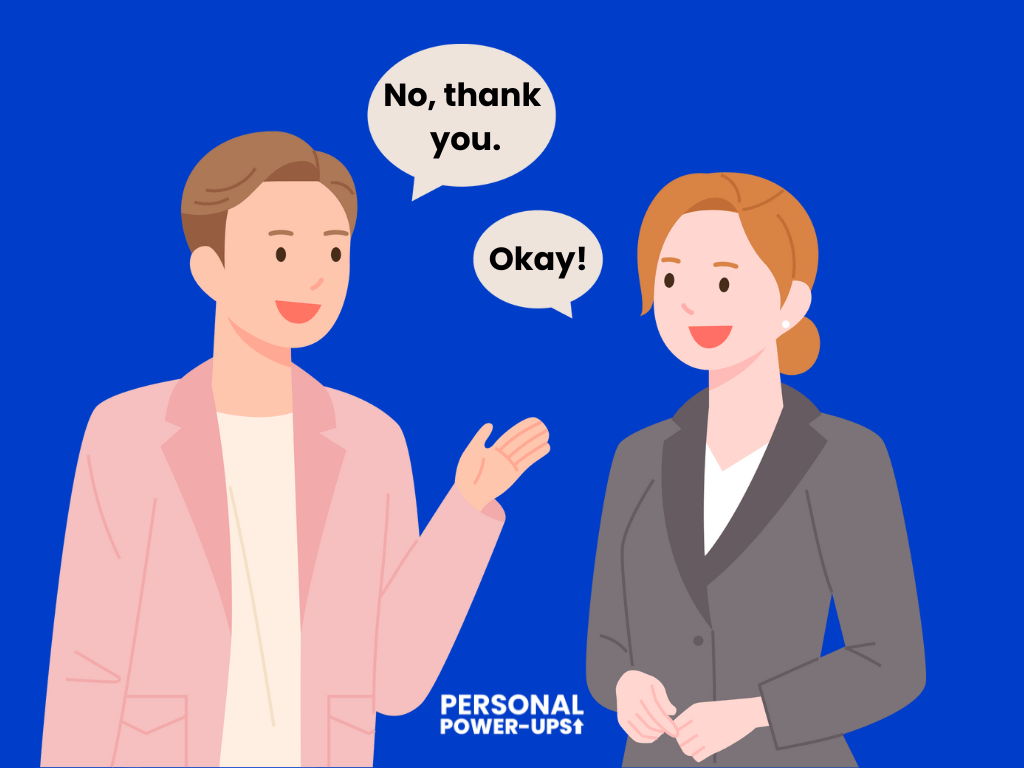
Exercise 4: Embrace Self-Compassion
Fear of failure and dwelling on past mistakes often erode self-trust. Embracing self-compassion breaks you free from this cycle. Instead of criticizing yourself for every (little) missteps, you reframe them as lessons and opportunities for growth.
For instance, if you miss a deadline, focus on what you can learn from the experience rather than berating yourself. Simple affirmations like “I’m learning, not failing” can help replace negative self-talk with kindness, reinforcing your belief in your ability to improve. If this is something you want to work on, be sure to check out our article about the kintsugi mindset.
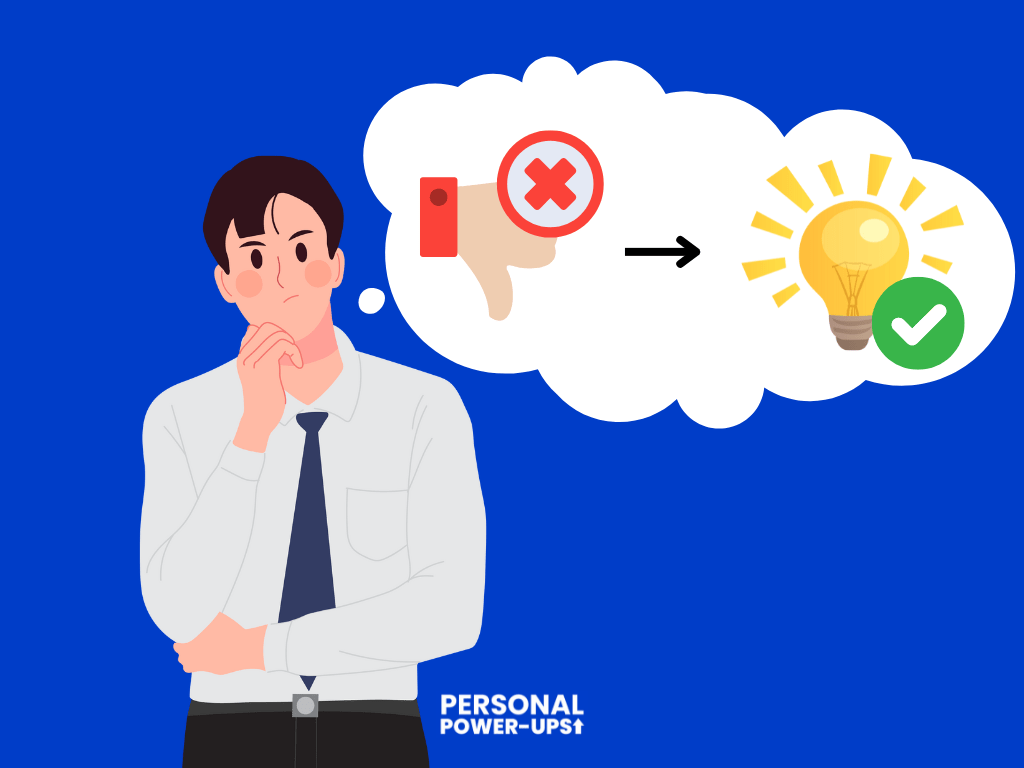
Exercise 5: Follow Your Intuition
Overthinking often stems from a fear of making the wrong choice. Should I do this, or should I do that? But what if…? Oh, but this guy says…
Trusting your intuition can help quiet that almost endless inner discussion that paralyses you. Trust your gut!
Start by using your instincts in low-stakes decisions, such as picking a book to read or deciding where to go for a walk. As you notice your intuition guiding you effectively, you’ll gain the confidence to trust it in more significant situations.
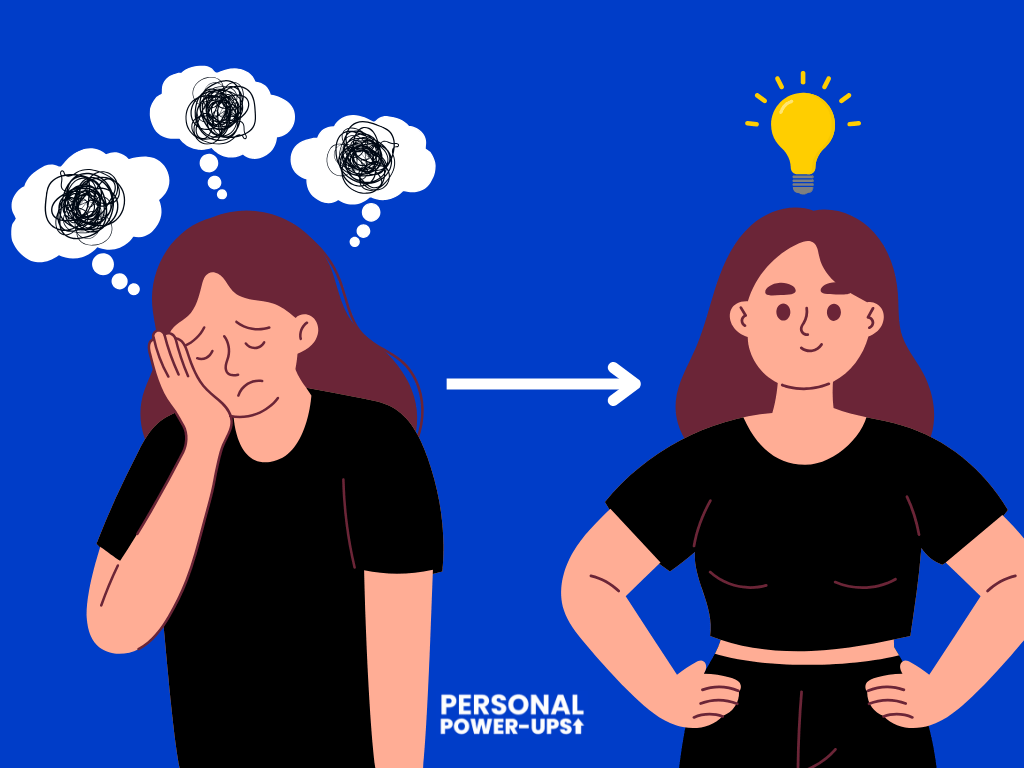
Exercise 6: Use Positive Self-Talk
Negative self-talk distorts reality and makes you focus on every little thing you don’t like about yourself. It’s one of the most prevalent ways people erode their self-trust. Luckily, there are plenty of positive self-talk exercises you can use to transform your inner dialogue into something that build you up instead of breaking you down.
We’ve written an entire article filled with positive self-talk exercises, so be sure to check those out if you want to improve your inner voice.
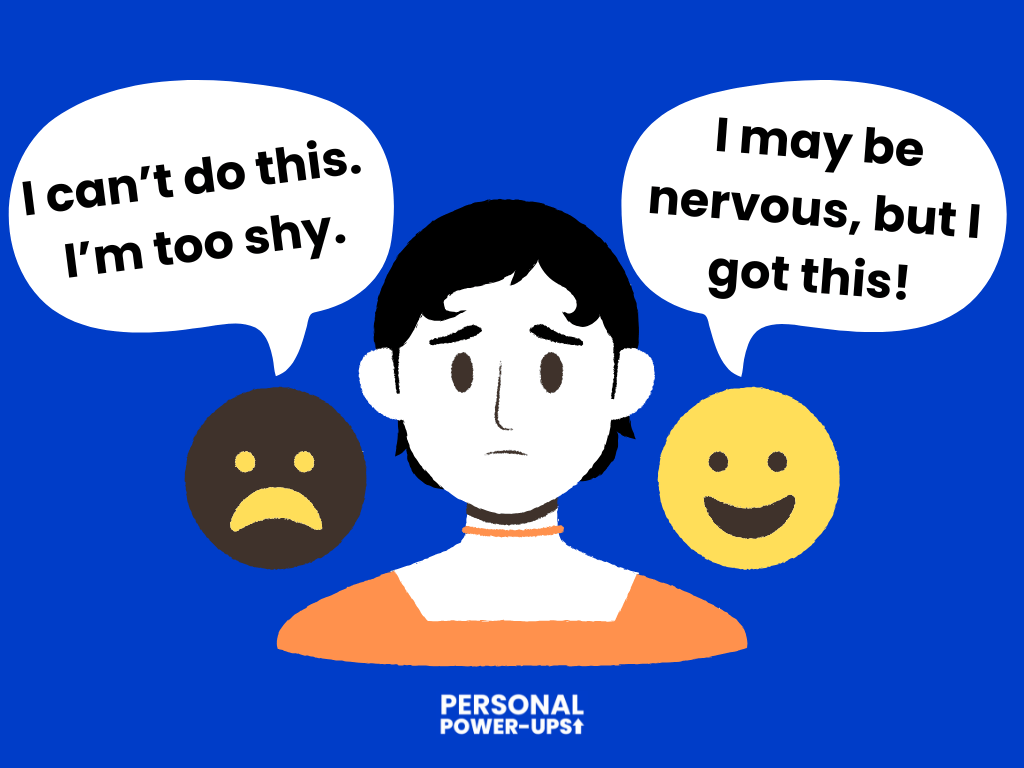
Exercise 7: Inspire Yourself With Action
Fear of failure and perfectionism can make you hesitant to act. Taking action—even if it’s imperfect—proves to yourself that you can make progress despite challenges. As I like to say: action inspires action.
For instance, if you have a fitness goal, start with a 10-minute workout rather than aiming for an hour-long session. Breaking big goals into smaller steps makes them feel much more achievable and reinforces the belief that you can follow through. Over time, consistent action builds a strong foundation of self-trust.
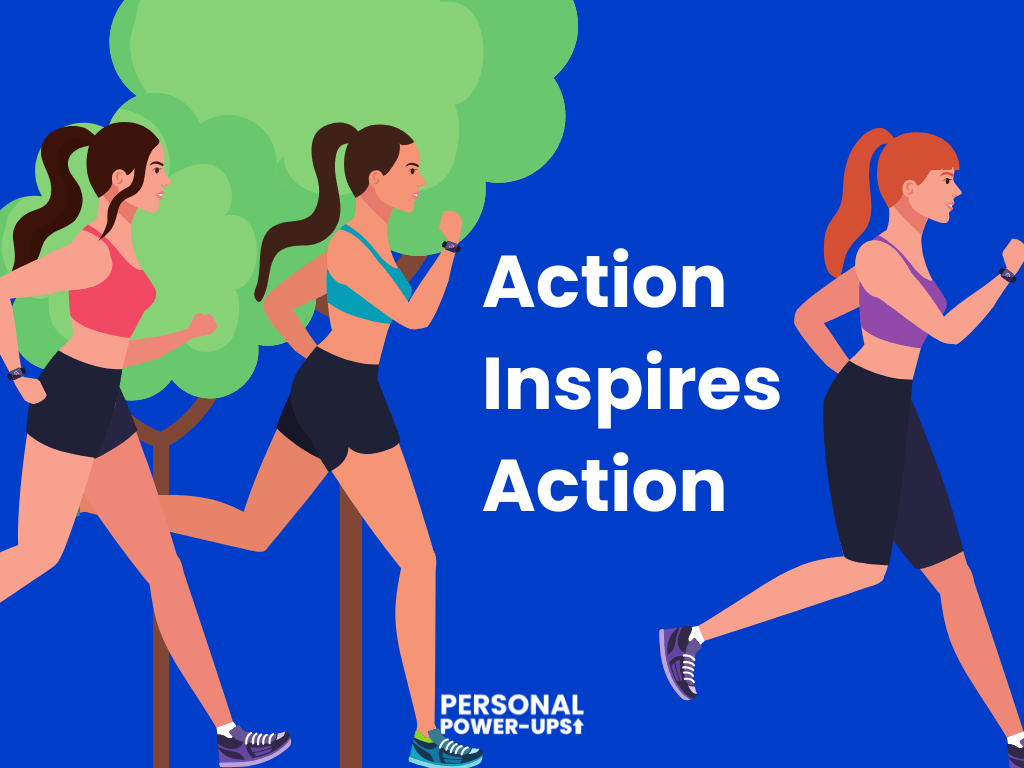
▼ Ad
Conclusion
Having good self-trust is important for many parts of your life, including your social life and personal growth. Through the 7 exercises in this article, you’ll be able to boost the trust you have in yourself. Self-trust starts with small steps, so begin building yours now by picking one exercise and trying it out today!




